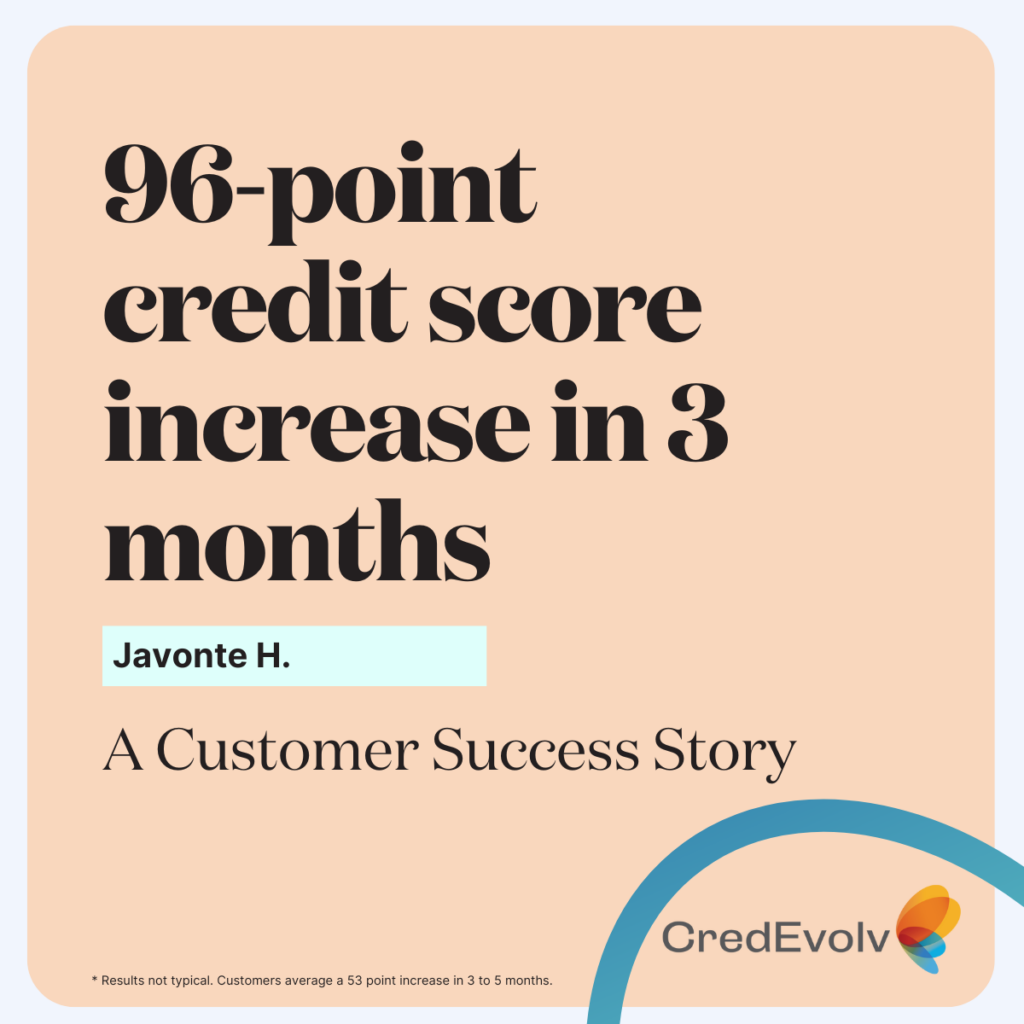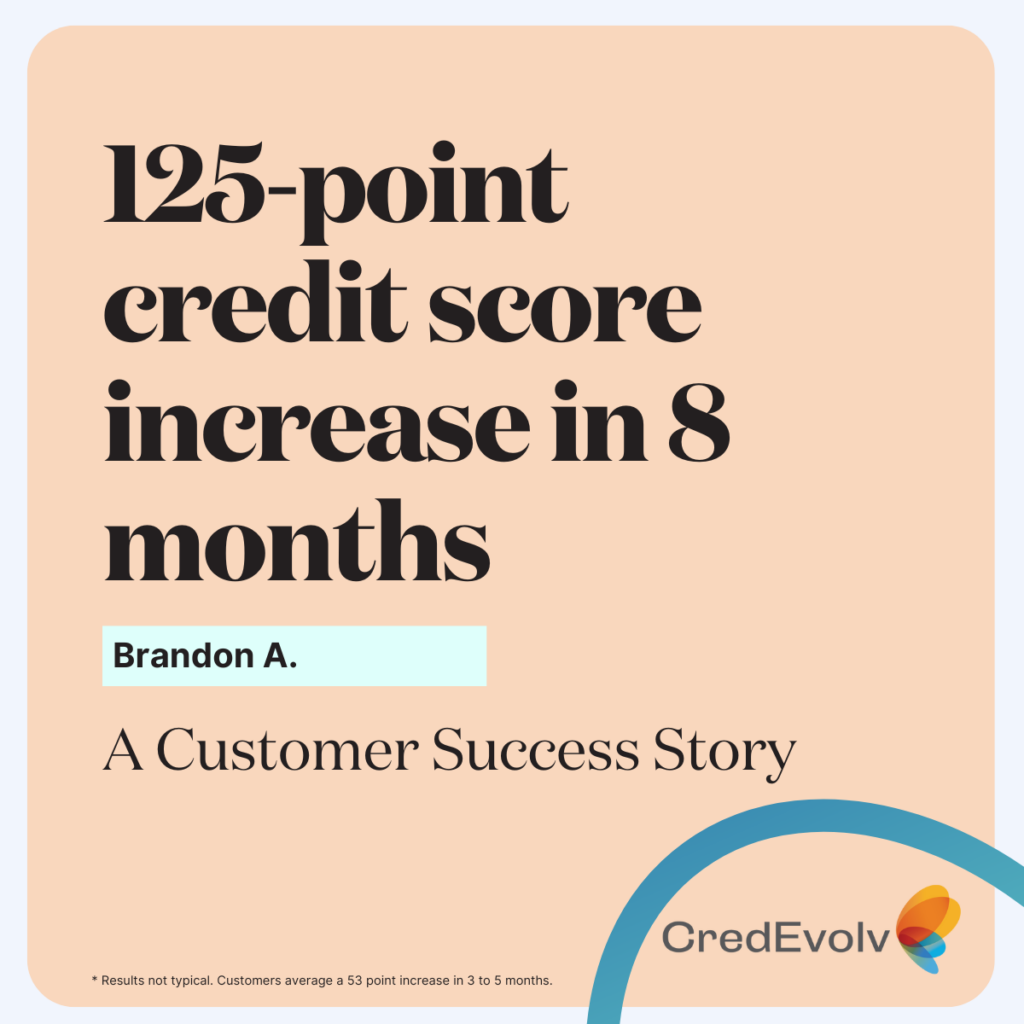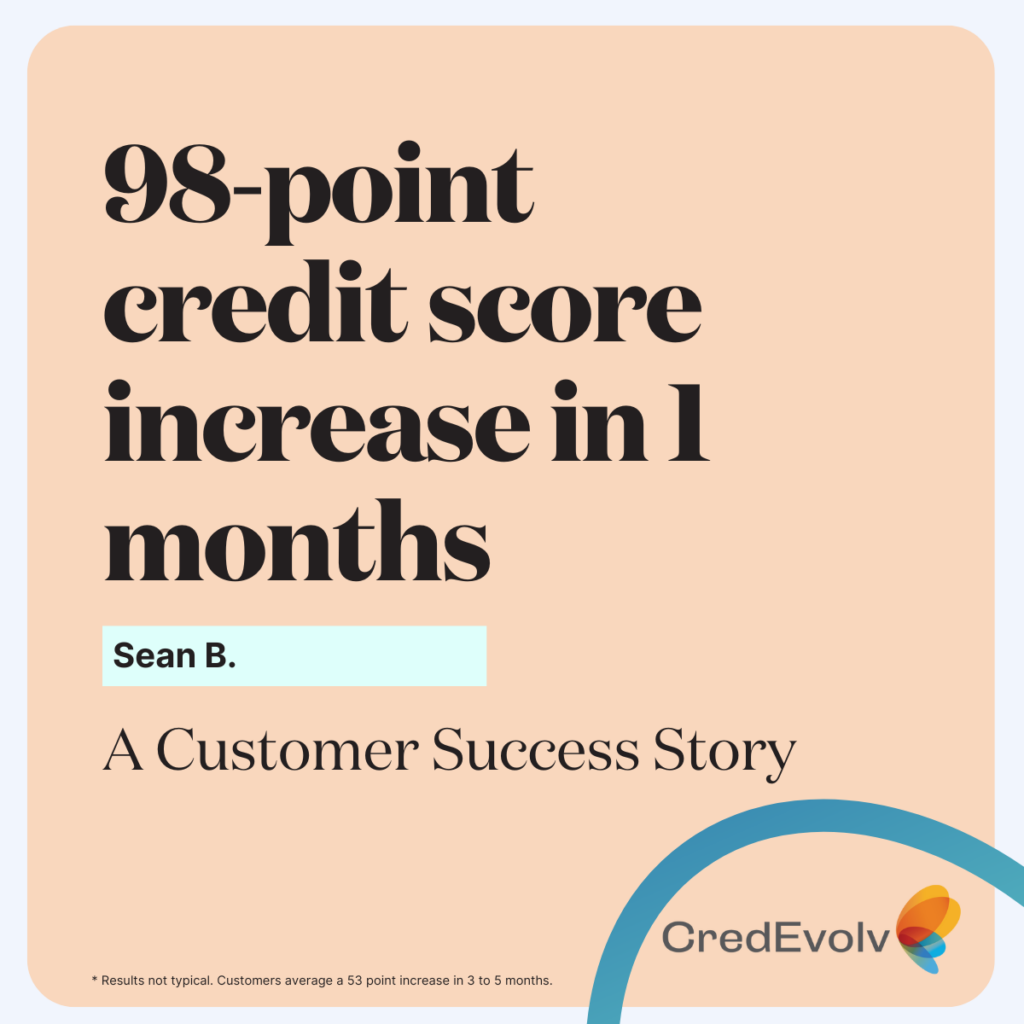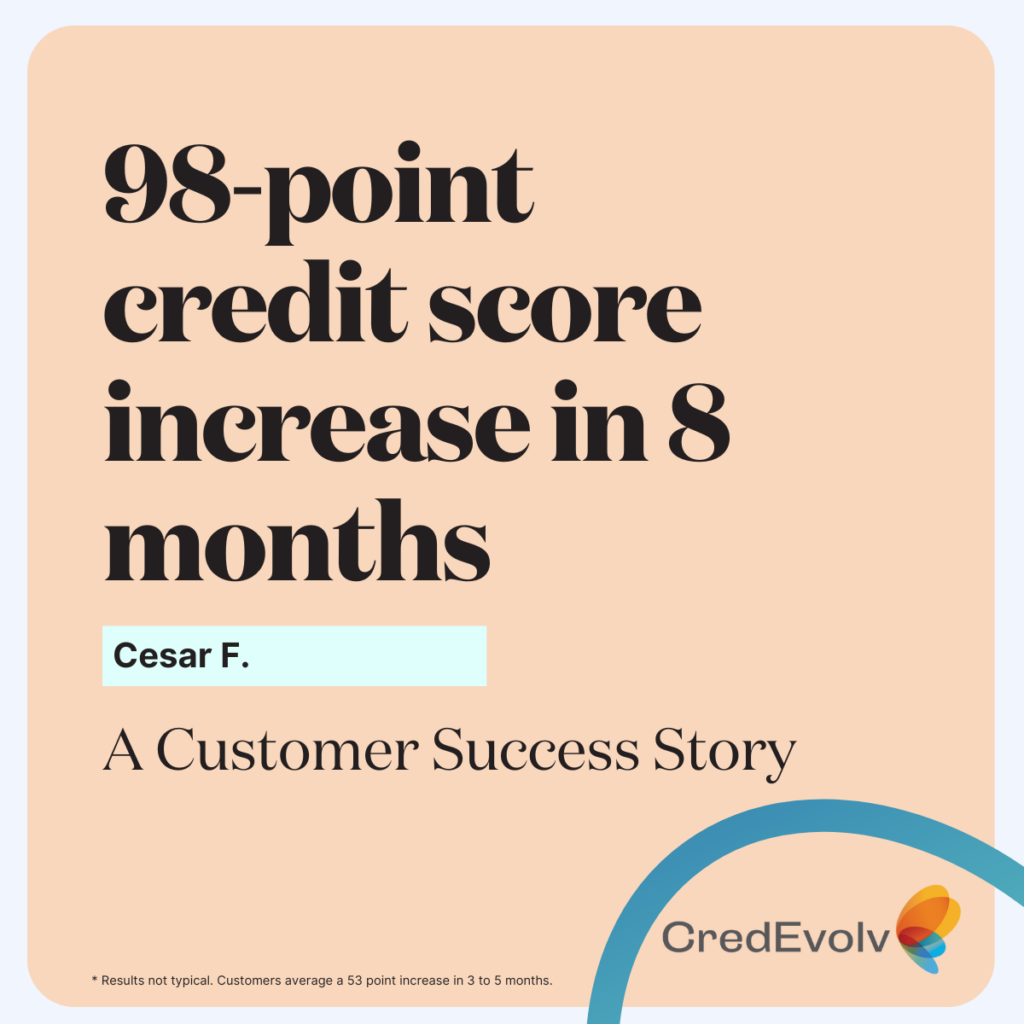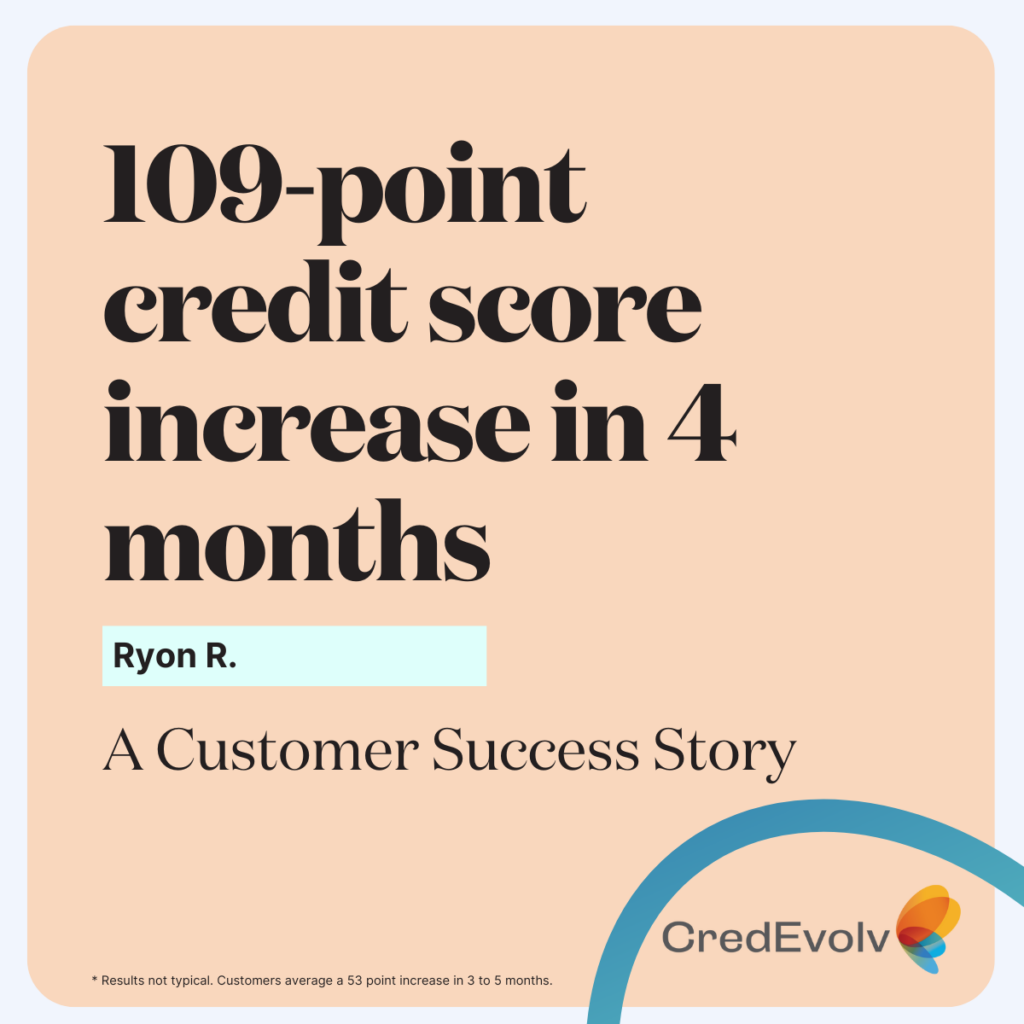Sometimes you get so close to a goal that you’re not even disappointed. In fact, you’re inspired to keep going because of all the progress you’ve made from a 554 credit score.
That would describe CredEvolv client John S.
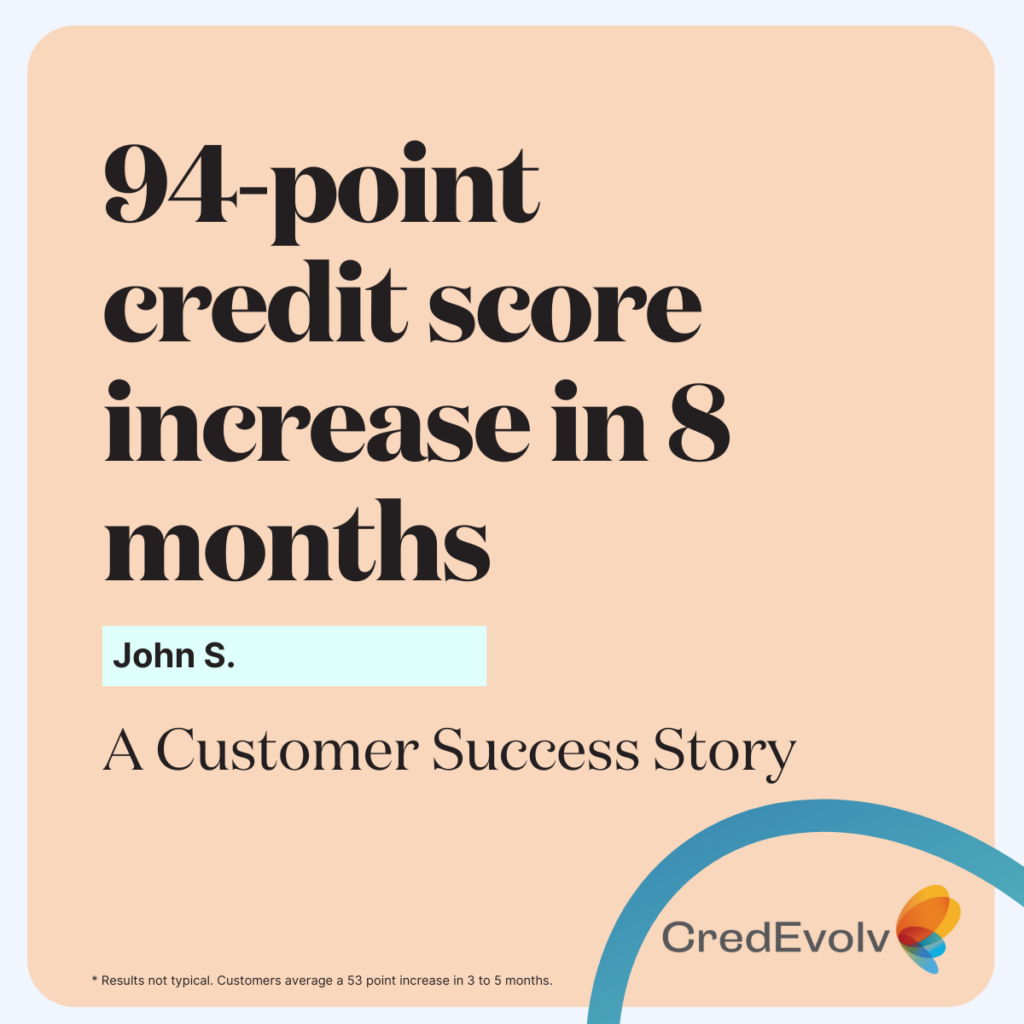
John came to us with a 554 credit score. He needed to improve it to 620 to qualify for a mortgage, but set a personal goal of 650. He paid down his credit card balances and his counselor had some collections accounts removed from his credit report.
Eight months later, he ended up with a 94-point increase from a 554 credit score. That put him on the verge of achieving his goal with a 648 score!
Why are high credit card balances so bad?
Having a high utilization ratio can hurt your credit scores – even when you make the minimum required payments on time every month. It also makes it increasingly difficult to qualify for more credit. In addition to the impact on your 554 credit score, high credit card balances can increase your debt-to-income ratio (DTI).
Lenders look at your DTI ratio to gauge how much of your income already goes to debt payments. A lower DTI signals to lenders that you have room in your budget to take on more debt without overextending yourself. On the other hand, a higher DTI might raise red flags, suggesting you could struggle to manage additional monthly payments.
In general:
- A DTI below 36% is good and indicates you have a manageable level of debt.
- A DTI between 36-49% is acceptable but may make it harder to qualify for some loans or the best interest rates.
- A DTI above 50% could limit your borrowing options and indicate that you’re at risk of becoming overwhelmed by debt.
What can and can’t be removed from my credit report?
In a prior Credit Education blog, we discussed an essential topic: knowing which items can legally come off your credit report and which must remain. Improving your 554 credit score isn’t about erasing past financial history. It’s about making sure your report is correct and taking steps to strengthen your financial future.
There’s a lot of misinformation about credit repair. Some companies claim they can wipe out all negative marks from your credit history. That’s simply not how the system works. In reality, it is illegal to remove accurate, negative information from your report.
The Fair Credit Reporting Act (FCRA) ensures that credit bureaus report only accurate and verifiable data. If you’ve had late payments or a loan default, that information may legally stay on your report for up to seven years. Bankruptcies, depending on the type, can remain for as long as 10 years.
At CredEvolv, we believe in honesty and clarity. The truth is that no company or individual can lawfully erase valid negative items from your credit report. However, the certified, nonprofit credit counselors available through our platform can assist in disputing errors or outdated details that may be unfairly impacting your 554 credit score.
Our counselor partners specialize in identifying reporting mistakes and unfair practices. By correcting inaccuracies, they help ensure your credit report is an accurate reflection of your financial situation, giving you the opportunity to improve your 554 credit score over time.
In John’s case, collection removals and a lower DTI put him two points away from his personal goal when he started on the CredEvolv platform. That’s what we call a winning combination!
Read more credit success stories here.


